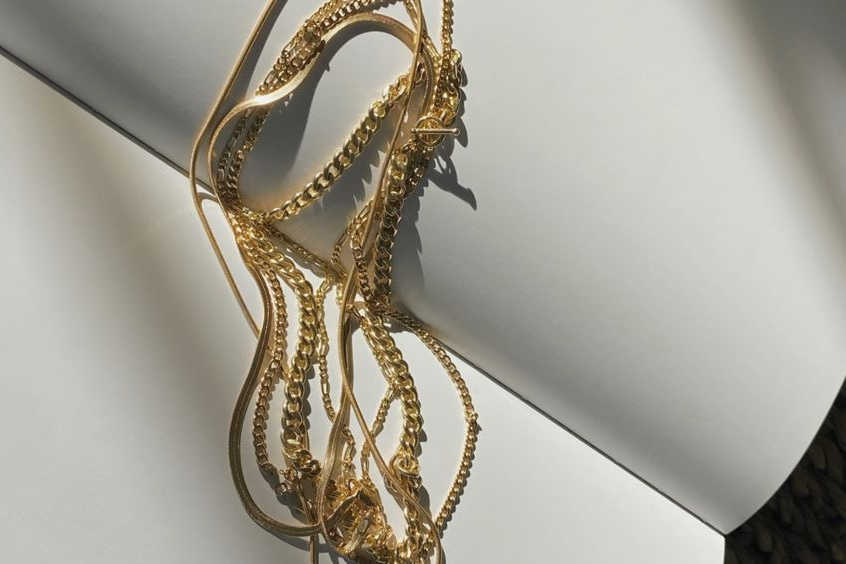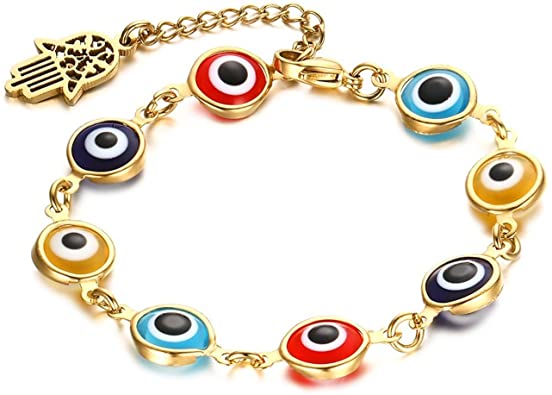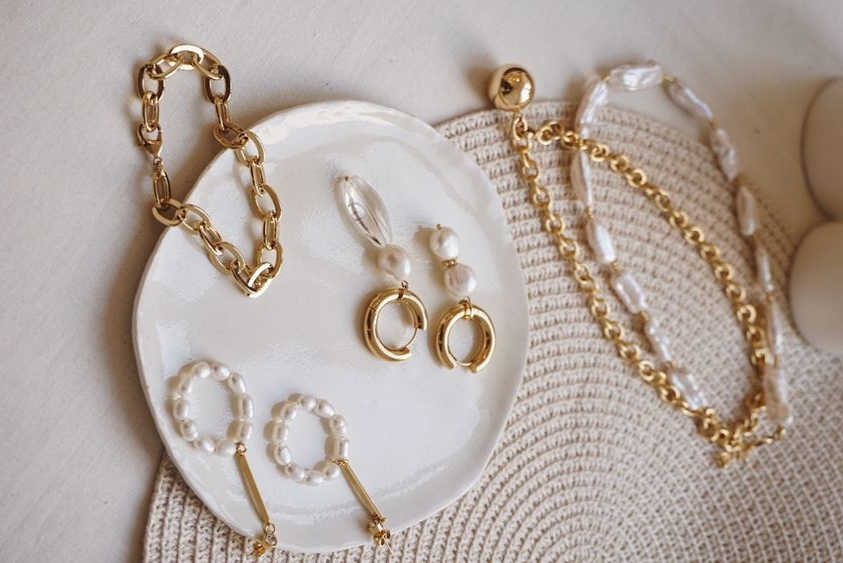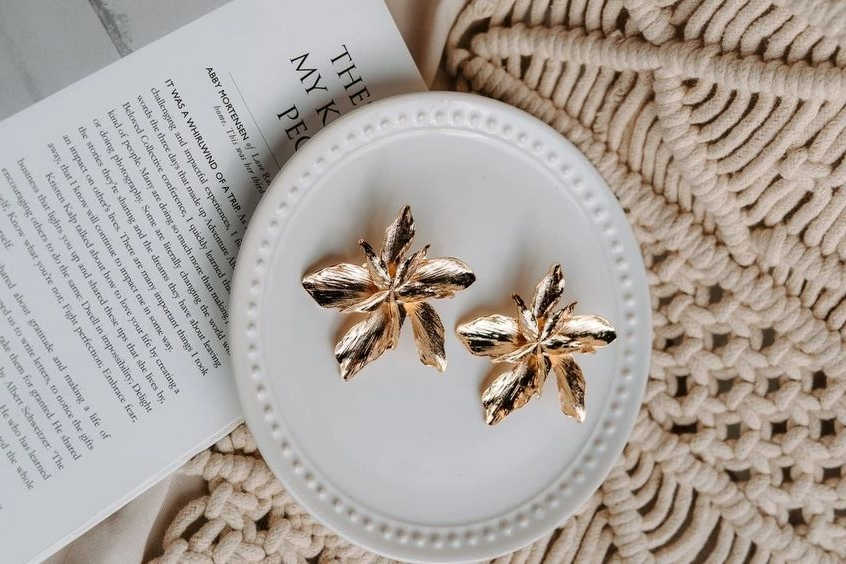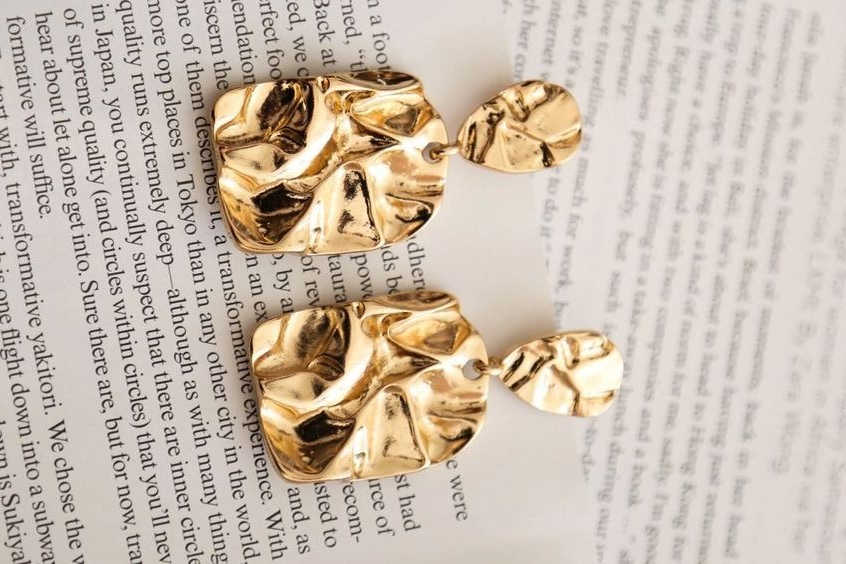Hypoallergenic jewelry is the select kind of ornaments that minimizes the cause of skin reaction. Anyone who experiences redness and itchy feel and hot sensation knows that’s not a feeling you want. So today, we focus on hypoallergenic jewelry.
What makes jewels hypoallergenic?
If you develop skin allergies when you use jewels, you will most likely look for the gems that are labeled hypoallergenic.
The one thing that will make the metal of choice hypoallergenic is whether you choose the safe ones and with the highest purity levels.
When you use many alloys to make the jewels, the chances are that you may have one that will always cause allergic reactions within the alloy metals. So if you are going to use the precious metal in their purest form, you are sure it’s safe.
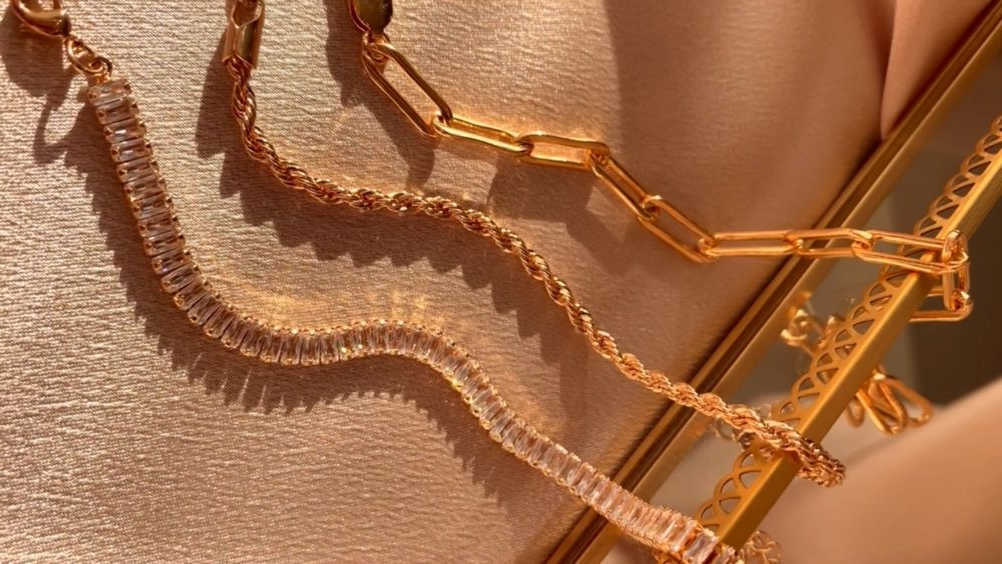
Is hypoallergenic the same as nickel-free?
It’s not strange that people confuse these two to be synonymous, but they aren’t the same. A hypoallergenic metal doesn’t necessarily mean that it’s free of nickel.
Notice that you could have a metal claim to be hypoallergenic but still cause the reaction. This may be because it has nickel as part of the other metal composition.
Hypoallergenic just means that the metal has minimal risk of causing skin allergies. Remember theirs, not even a set standard that the metals should meet. This is why sometimes vendors just throw the word here and there to have buyers. That’s why you should check other factors too.
Therefore, instead of using the hypoallergenic label as a guide to know the safe metals, you should use the list of materials below that are safe.
Is hypoallergenic the same as nickel-free?
It’s not strange that people confuse these two to be synonymous, but they aren’t the same. A hypoallergenic metal doesn’t necessarily mean that it’s free of nickel.
Notice that you could have a metal claim to be hypoallergenic but still cause the reaction. This may be because it has nickel as part of the other metal composition.
Hypoallergenic just means that the metal has minimal risk of causing skin allergies. Remember theirs, not even a set standard that the metals should meet. This is why sometimes vendors just throw the word here and there to have buyers. That’s why you should check other factors too.
Therefore, instead of using the hypoallergenic label as a guide to know the safe metals, you should use the list of materials below that are safe.
Advantages of lead and nickel free jewelry
Although the lead is not very common in the jewels today, you may still find small pieces within the jewels. The one that is still in use often is the nickel. So here are the advantages of using lead and nickel free jewels.
Health effects
You won’t have to think about the adverse health effects that the metals often cause. Both of these metals are associated with cancers. If you are consuming large amounts of nickel or lead, you are sure to cause different kinds of cancers.
Nickel mainly can cause lung or nasal cancer. On the other hand, lead can cause any cancer related to the nervous system and brain.
Lead is a heavy metal
Over recent years we have had all the negative effects that lead has on our bodies. You do know that lead will damage the central nervous system over time, among other adverse effects, so if you can find a jewel that’s free of lead, the better.
They never cause allergies
This is mostly medical-grade, and thus they never cause a skin reaction. Often such jewels have the purer metals, therefore without additional minerals to the mix.
The first thing, though, is that such metals don’t have nickel; therefore, it’s always safe to use them. Metals like platinum and titanium are naturally hypoallergenic.
It‘s comfortable
You should understand this because it’s the worst thing to start itching in the middle of your special events. When you choose the hypoallergenic jewels, you are sure there won’t be itching. You can wear them all day and be okay or safe. You should feel beautiful without the random itching.
They make you look perfect
Of course, when you are only buying the hypoallergenic material, it will be that you focus on only high-quality options. If you are going to buy the high-quality stainless steel, sterling silver, or gold type, you can be sure it will maintain the shine while serving you the perfect look.
It will avoid nickel allergies
For anyone who experiences nickel allergies, you can imagine using the jewels made using nickel. The mild to severe reactions are nothing y9u want to experience. The good thing, though, is that hypoallergenic gemstones cause no allergies.
Remember the moment you realize that you react to nickel; you will always have it. When you buy hypoallergenic, then you protect your skin from allergies. Notice that the skin is the largest organ of your body, so you have to treat it with care.
You will only have quality jewelry
The only good thing about this is that mostly you will find the purest form of hypoallergenic jewels. They will look as good as new through the time you have them on.
The good thing is that the pieces are made using the purest form of the metals too. Therefore, they will last and look expensive.
Talk about value for your dollar
You will receive a quality jewel, and that can only mean one thing, you have all the better since the products won’t even cause a skin reaction. In essence, therefore, you will spend a little more on the jewel.
Besides, you won’t tarnish and discolor your skin. Of course, you should only use the best jewels that are worthy of the dollars you invest. Hypoallergenic ones are the types you need.
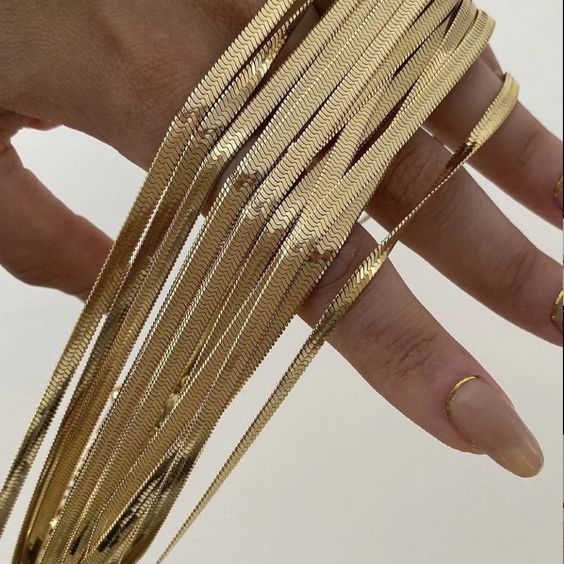
What metals are hypoallergenic?
Finally, we will show you a few of the metals that we know of as being the best and hypoallergenic.
Is brass hypoallergenic?
Brass is not hypoallergenic, and it will cause allergic reactions. Brass features copper and zinc to make the alloy, but sometimes you may have nickel as part of the alloy. Notice that the reason why your skin may turn green at times is because of the copper in the alloy.
Let’s, however, say that it depends on the type of brass you are using. Some will be hypoallergenic while others are not. This is the case if they have lead and nickel content in the metals.
Is the rhodium-plated one hypoallergenic?
Rhodium is hypoallergenic metals, and most jewelers use it to strengthen the metals they are mixing it with. Also, it can give the jewels a super finish. If you plated the brass with rhodium, you could be sure it’s hypoallergenic.
This hypoallergenic feature, though, is only useful when the brass underneath is not yet exposed. With time then the metal will peel off, exposing the base metal.
What of the gold and silver-plated brass?
In the case of both gold and silver, it all depends on the type you are using. If you use white gold, then you will experience the effects of skin allergies.
So if you use the high quality 925 silver, then you are sure it will be hypoallergenic.
Suppose you use the yellow gold or rose gold that’s 18Karats and above then its hypoallergenic. But the moment the layer peels off and the brass is exposed, you can be sure it’s going to cause skin reactions.
Is brass nickel-free?
Not fully. Sometimes and some types of brass may have nickel in the mix. Others, though, only have the zinc and copper alloy. Of course, you know that when the metal has nickel though it may cause allergies for some people.
Is copper hypoallergenic?
The most common thing about copper is that it will turn your skin green sometimes. But whether it’s hypoallergenic is something people still don’t know.
The copper is hypoallergenic and yet soft and malleable. The only thing it does is make the skin green, but this tint color you can simply wipe out. It does not affect your health whatsoever. It doesn’t cause a rash or any permanent scar.
When we are talking of pure copper, then you are sure it’s safe. But if you speak about the ones that use copper to make it harder, then such are not hypoallergenic.
Is zinc alloy hypoallergenic?
Here we will say it’s a yes and no answer as it depends on whatever circumstance we are talking of. We have people who experience an allergic reaction when they use zinc alloys, while others don’t. So it’s safe to say that the content matters.
Notice that, in most cases, it will feature a blend of zinc and copper. In other instances, though, it will feature a mix of zinc, copper, and nickel. So if you made brass out of the zinc alloy, you have the hypoallergenic type of zinc alloy. But if you use the nickel in the alloy, then it’s non-hypoallergenic.
Is gold hypoallergenic?
Here we may say that it’s a yes and no answer, but mostly gold is hypoallergenic. Remember, though; it will depend on the type you choose.
For example, if you want white gold, it’s non-hypoallergenic just because it has nickel as part of the alloy that makes it.
If you can get the gold in its almost pure form, though, you can be sure it will be hypoallergenic. But remember you can’t use pure gold to make jewels. So while you will want only to wear the 18K gold and above, be sure of the additional content. It will determine whether it’s hypoallergenic or not.
Is 14k gold hypoallergenic?
It will depend on the content that creates the alloy. The karat will show you the amount of gold purity. The purest gold is 24K. Other karats have additional metals to make them manageable.
Now depending on the content of the minerals that make the alloys, you can be sure it will either be hypoallergenic or not.
Notice that mostly the factories use nickel, copper, and zinc to make the gold manageable. So if it contains nickel, then it will be a non-hypoallergenic type. Anyone with susceptible skin should not wear such jewels since they will cause a reaction. In most cases, they have nickel.
In the case of white gold, we are sure it’s non-hypoallergenic.
Is stainless steel jewelry hypoallergenic?
Before we answer this, I would like you to know that there are different grades of stainless steel jewels. Such categories have different contents that make stainless steel. So it’s a yes and no answer. It will depend on the grade of stainless steel you are talking about.
The high-quality surgical steel type is hypoallergenic. It will never cause any form of skin reaction since it a medical-grade model. It’s the highest quality stainless steel.
However, when you’re talking about the low quality steel, then it will be different. Such will cause reactions, and many people have complained of the itchy sensation it creates. So if you are going to buy stainless steel, then choose the highest quality type.
Is stainless steel nickel-free?
Most people find stainless steel to be the perfect solution to enjoying your favorite silver like jewels. After all, you will spend very little on the same compared to other jewels materials.
So I hate to break it to you, but stainless steel contains nickel in different quantities. It’s the reason why the stainless steel jewels remain nicely shiny and durable. But the grade of the stainless steel will show you whether it has a lot of nickel.
If say you choose grade 304 or 316L steel, you will be sure it has low quantities of nickel. Notice, though, that the grade 304 steel has the smallest nickel amount. At this level, it’s more manageable. If you, therefore, have a nickel allergy stainless steel jewels are not your perfect choice.
Is sterling silver hypoallergenic?
Mostly yes. But remember it also depends on the 7.5% metal content that’s added to the 92.5% pure silver. In most cases, they simply add copper, which is hypoallergenic. But when other brands add a nickel to make the sterling silver, sterling silver is non-hypoallergenic.
Read more about it here.
This then means that you should choose the one you are sure was made using copper only as opposed to nickel in the mix. With that said, I can’t know that you may not find traces of nickel in your sterling silver.
If you do find the ones with nickels, then they may cause slight allergic reactions.
Is aluminum hypoallergenic?
Of all the metals you see here, it’s safe to say that aluminum is hypoallergenic.
There are very few people who have reported reacting when they use aluminum. Generally, though, it’s safe to use it just as it is to use titanium and the likes.
What you didn‘t know about hypoallergenic jewelry?
The term hypoallergenic is common in the jewel world. It’s supposed to refer to the jewels made using metals that don’t cause allergies. It means that the jewels will cause minimal to no skin sensitivity.
So when we are talking of nickel, the amount in the jewel is often below minimal or not in the jewel entirely.
Unfortunately, there’s no country in the world with a set standard as to what the jewels must meet to make them hypoallergenic. We further don’t have a medically testing method to set the hypoallergenic jewels apart. What we are saying, therefore, is that the jewelers can use this term to woo buyers. That’s why you need to know the right kind of hypoallergenic jewels to buy.
Become a cleaver buyer when buying the hypoallergenic jewelry
Many people want to buy only the safest types of hypoallergenic jewels. It’s, however, not enough to just use this term as a guide.
To be on the safe side; therefore, you will need to factor in the following points.
Remember to avoid nickel
Although the term hypoallergenic will mean that it has minimal abilities to cause allergies, it doesn’t mean that it has no nickel. To be sure therefore go for those that state that it’s nickel-free. If you have a nickel allergy, this is a point you don’t want to compromise on.
One metal you are sure will have no traces of nickel is platinum and yellow gold. If you are going to buy the sterling silver, though, find the option that’s free of nickel. White gold has some nickel, so you should stay away from it.
Go for nonmetal ones
We have other great options that will even be the high end yet not made using metal. You can choose beads or pearls if you react a lot to metal ones. Besides, you could even have the metallic beads that won’t give you a rash, yet you will still look amazing.
In other instances, you could choose to use the leather bracelets in place of metal jewels.
You should be keen when buying
Unfortunately, some sellers are just looking for the dime. They will fake the brand or type of jewel just to get the money. So be on the watch to see if you trust them. Check their reviews before you order. Once you have the jewel, check it out to see if it’s the real quality they pose it to be.
You can buy jewels online, too, but only if you have bought others offline before. This means that you know how they are supposed to look.
Think of the durability and long term jewelry
Of course, when you are going off to buy the jewels it’s better if you buy the ones that will last longer. If you are going to buy the platinum, you will win because although it’s costly, it’s durable yet hypoallergenic.
Such an expensive piece will never cause your skin reactions or even turn your skin green. This option is further great since it will never corrode or even tarnish your skin.
Imagine spending a lot, but having the metals last for more than 20 years.
Test the piece
If you are buying it offline, then go out to test the jewel to see if it works for you. The scratch test is one of the compelling methods to use.
So you will rub parts of the jewel on your neck to see if it will cause a rash or any discomfort. Once you know it causes the reaction, you can avoid it.
What is the best metal for sensitive skins?
We have discussed most of this in the previous subtopics. However, it’s good to mention the ones that are ideal for those with susceptible skin.
Platinum
This is usually an expensive choice but all worth it. In its pure form, this platinum will never cause any skin reaction. Besides, it looks valuable and beautiful; no wonder it will cost you a lot more. Even when it’s alloyed, the jewelers mix it with iridium or rhodium that’s very safe.
It doesn’t matter the jewel you want to use, you can buy this white-colored platinum, and it will always look great.
Titanium
It’s lightweight yet one of the hardest options, thus durable. But aside from its durability, it’s ideal for those with sensitive skin as it doesn’t cause reactions. Although the ones jewelers use is alloyed, it doesn’t contain nickel in the mix.
Gold
Not all gold is suitable for sensitive skin, but yellow gold and rose gold are perfect. White gold will cause skin reaction; thus, you should keep off. To be on the safe side too, you can use the gold that’s close to the pure one. Mostly you should use 18K gold that way; it doesn’t have so many metal additions.
Sterling silver
If you are sure no nickel was added, then you can safely use it. Unfortunately, some countries add nickel or cobalt to make it hard. Such will cause an allergic reaction. Only choose the ones that have silver and cobalt.
Argentium silver
This is another safe addition to the jewels that are meant for those with skin sensitivity. It has a higher content of silver, and only germanium is added to make it manageable.
Check out the guide Argentium Silver Vs Sterling Silver to see the differences between them.
Surgical steel
This is a great metal; that’s why medics use it in body implants and new piercings. This is another safe choice if you experience a lot of sensitivity. Of course, it features 316L stainless steel. Of course, you should keep off other types of stainless steel.
Niobium
Here is another element that’s great for jewelry because it never causes a reaction. In most cases, though, you will have it in an alloy, which is still okay.
Ten articles before and after
15 Best Hypoallergenic Body Jewelry
5 Best Customized Pregnancy Belly Rings
The Pros and Cons of Nose Piercing
Should I get the nose pierced?
How To Accessorize the Black Dress For the Wedding?
Titanium Vs Gold Vs White Gold, How To Choose?
Can Men Also Wear Diamond Jewelry?
